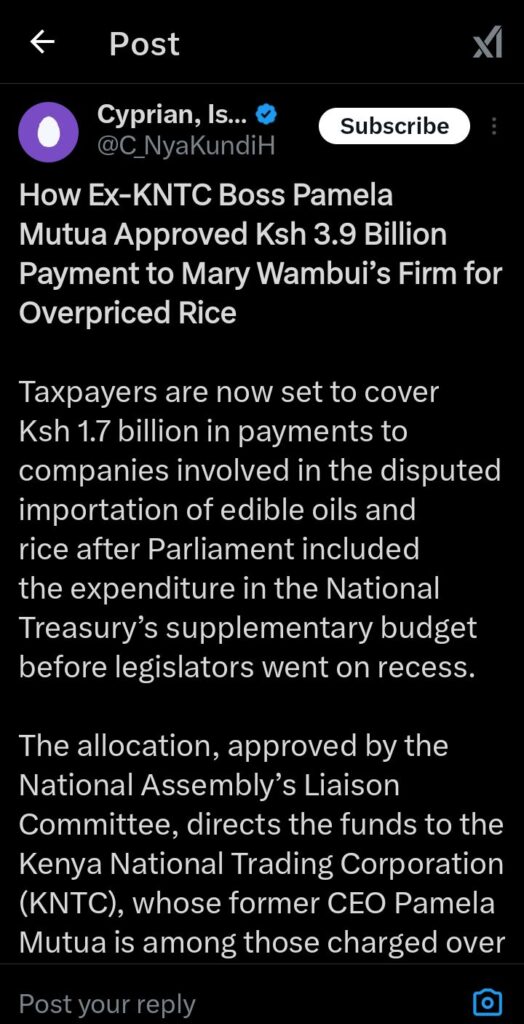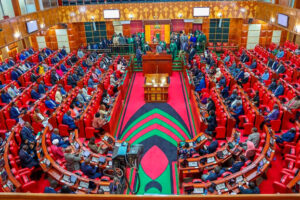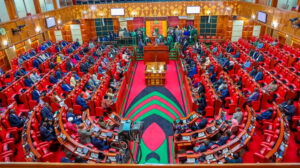In a post on X by Cyprian Is Nyakundi, shocking details emerged about how former Kenya National Trading Corporation (KNTC) boss Pamela Mutua approved a Ksh 3.9 billion payment to Purma Holdings, a company owned by Mary Wambui.
The payment was for overpriced rice in a corrupt scheme that has now left taxpayers shouldering a Ksh 1.7 billion financial burden. This scandal is just one of many cases where politically connected individuals have enriched themselves at the expense of the public.
The National Treasury sneaked this questionable payment into the supplementary budget, which Parliament hurriedly passed before going on recess. The allocation, approved by the National Assembly’s Liaison Committee, was included without any proper justification.
Even more concerning, committee chairperson Gladys Boss Shollei has remained silent on why billions of taxpayers’ money are being used to pay for these shady deals. This raises serious questions about whether Parliament is working for the people or for a corrupt elite.
Court proceedings have already exposed how powerful businesspeople lobbied State House to fast-track these payments. The entire importation program, which was supposedly meant to stabilise consumer prices, turned into a goldmine for politically connected traders.
It allowed them to import rice, edible oils, beans, and fertilizer without paying duty. However, the contracts were awarded through a highly suspicious single-sourcing process, creating room for irregularities and fraud.
Current KNTC Managing Director Lucy Anangwe confirmed in court that Purma Holdings was paid Ksh 3.9 billion for rice that was actually worth only Ksh 3.1 billion. This means taxpayers lost Ksh 800 million in an inflated price scam.
Even worse, Mary Wambui personally sought the intervention of Head of Public Service Felix Koskei to ensure her company was paid promptly. This clearly shows how deeply connected individuals manipulate government systems for personal gain.
Purma Holdings was not the only company that benefited from these dubious deals. It also secured a Ksh 2.5 billion contract for edible oil and a Ksh 3.4 billion beans supply deal.
Meanwhile, Charma Holdings, a company linked to Wambui’s associate Ruth Waithira Kinyanjui, was handed a Ksh 1.95 billion contract for edible oil. Another firm, Evertec General Trading Company Ltd, was given a Ksh 984 million edible oil contract, despite its past involvement in a Ksh 2.2 billion tax evasion scandal.
Wambui’s other company, Enterprise Supplies Ltd, also received a Ksh 984 million edible oil contract. Pamela Mutua, who was in charge of KNTC at the time, has since been charged alongside Supply Chain Manager Amos Juma Sikuku for mismanaging public funds and engaging in procurement malpractices.
The entire scheme, which was presented as a Kenya Kwanza initiative to lower consumer prices, has now been exposed as a fraud that only benefited a few well-connected individuals.

Local manufacturers had even warned that the importation of duty-free edible oils would hurt their businesses, but their concerns were ignored because the goal was never to help Kenyans it was to help corrupt cartels.
Among the foreign companies involved in this scandal are Lamar Commodity Trading DMCC, Multi Commerce FZC, Lone Trading FZE, and Invest Africa FZCO. The latter has direct links to former Trade CS Moses Kuria, operating in Kenya through its subsidiary, Shehena Commodity Ltd.
This company imported edible oil worth Ksh 1.2 billion and then sold it to KNTC in yet another suspicious deal. Multi Commerce FZC supplied edible oil worth Ksh 8.3 billion and 10,000 tonnes of rice, while Lone Trading FZE provided KNTC with edible oil worth Ksh 7.1 billion and 52,500 tonnes of rice.
The involvement of these foreign firms raises even more concerns about how Kenya’s resources are being looted through fake procurement deals that only benefit those with connections in high places.
This entire saga confirms that corruption remains deeply entrenched in Kenya’s public procurement system. The fact that individuals like Mary Wambui, Pamela Mutua, and their associates were able to siphon billions from the government without consequences shows how broken the system is.
Even as Parliament approved these payments, no proper scrutiny was done, proving that institutions meant to protect the public interest are either compromised or indifferent.
Now, Kenyans are left to pay for yet another multi-billion shilling scandal while the culprits continue to enjoy their wealth. If no action is taken, this will only encourage more looting, as those in power realize they can steal with impunity.
The question remains, who will hold these individuals accountable, or will they walk free as taxpayers continue to suffer?





















Add Comment